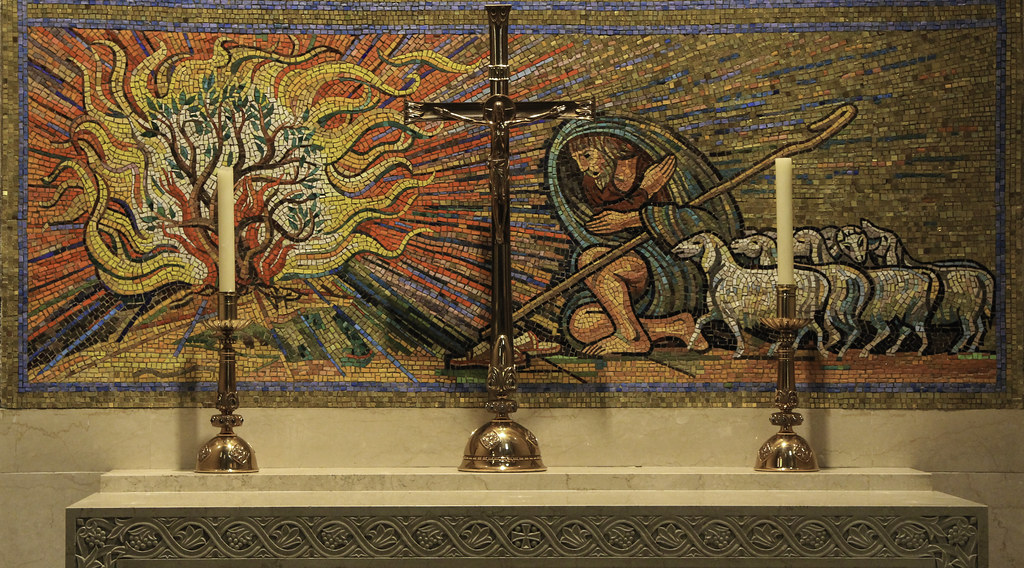There are plenty of references to Jesus as a shepherd and his followers as sheep in the Gospels. Jesus compares sinners in need of repentance to lost sheep. God is sometimes spoken of as a shepherd in the Old Testament as well. The parallels are not accidental, and neither is the image.
This image of God as shepherd and his people as sheep is valuable for understanding our relationship to God in part because it is earthy and relatable. From it, we get a sense of God’s tenderness and closeness to us in his Son, Jesus Christ. It shows us that God protects us from evil, provides our shelter, heals our wounds, and gives us nourishment. It shows us that God brings us back when we wander away from him.
When Christ presents himself as the Good Shepherd, it’s because he really is our shepherd, and we really are his sheep. He’s not presenting us with a relatable image merely to help us understand a theological point. Sometimes we just need a concrete and relatable image of our relationship with God. At other times, we also need to recognize how otherworldly and glorious this relationship is. A homily attributed to Saint Macarius of Egypt describes this relationship:
There is a secular fable that describes certain mountains which are fiery because there is a permanent fire within them. There are found animals that look like sheep. Hunters who try to capture them make iron wheels and fashion hooks that they heat in fire because those animals eat fire as their food, their pleasure, their growth, their life. Fire is everything to them. If you put them in another environment they die. Their coats, if they become dirtied, are not washed by water but by fire and they become even purer and whiter.
This story points us to the otherworldly glory of living in relationship with God. It begins with mountains, the place where God meets with the people of Israel. It continues with images of an abiding fire, images that persist throughout Sacred Scripture. Like the burning bush that Moses saw on the mountain, these sheep are on fire.
But the sheep are not destroyed. Indeed, they live most happily in that fire. In the same way, we sheepish Christians live most happily in the fire of God’s love. God gives us, his weak and flighty sheep, the gift of being able to live in his divine fire of love!
Our enemies wish to draw us out of the divine fire with temporary and weak fires. They tempt us with these fleeting flames to draw us away from the everlasting furnace of divine love. They want the Christian to rely on short-lived created goods instead of God himself, in whom we always live and move and have our being. As the homily above puts it: “So also Christians have that heavenly fire as their food. It is their pleasure. It purges, washes, and sanctifies their heart. It gives them growth. It is their air and their life. If such a one does not have that divine fire for his food, drink, clothing, and purification of his heart and sanctification of his soul, he is taken captive by evil spirits and dies.”
We Christians are called to be not just sheep but sheep on fire with divine love. To live our lives in close relationship to God as his sheep means that we participate in this divine love, burning with a charity that makes us more fully alive. As sheep on fire, we aren’t just sheep who show a nice relatable image for the world to see. We are burning torches of divine love which point to the otherworldly glory of heaven.
So let us be the sheep of God’s flock! May we ever live and move and have our being in the fire of divine love.
✠
Photo by Fr. Lawrence Lew, O.P. (used with permission)







